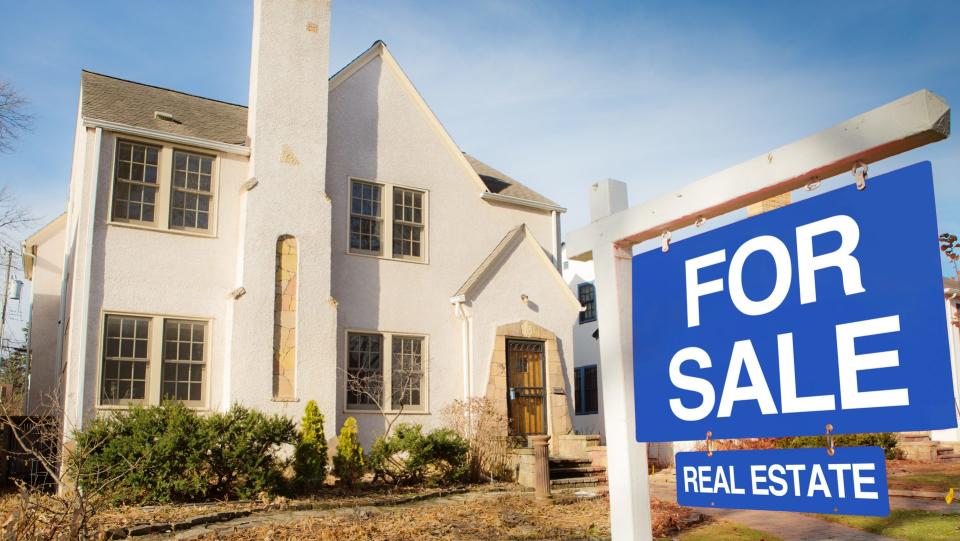Real Estate Experts Share How Much They Would Pay for a Home in Today’s Market

Over the last few years, home prices have skyrocketed. Between June 2020 and June 2022, the median home sale price shot up by over 70%, according to Redfin data.
See: 15 Best Places in Texas for a Couple To Live Only on Social Security
Also Find: Best Cities To Retire on a Budget of $1,500 a Month
These price hikes are enough to discourage potential buyers from entering the market. As many as 33% of people considering a home purchase last year decided not to follow through, according to the 2021 ServiceLink State of Homebuying Report.
But, as the market begins cooling down, you may be wondering if now is a good time to buy. If so, how much should you budget?
As the Market Cools, How Much Should You Pay for a House?
Beatrice de Jong, consumer trends expert at Opendoor, says she’s already seeing signs of the housing market cooling.
“However,” she warned, “I think buyers can still expect high prices and mortgage rates through the summer at least.”
Nicole Rueth agrees. As senior vice president and producing branch manager at The Rueth Team with Fairway Independent Mortgage Corporation, Rueth is seeing overpriced homes sitting on the market for an average of 28 days while well-priced and well-staged homes sell within four days.
“Overall, homes are seeing fewer showings, fewer offers and fewer offers that are over asking,” she said.
Of course, the exact amount you can expect to pay for a home depends on many factors, including your location and the condition of the property. However, there are several general guidelines you can follow to make sure you budget appropriately.
Plan to Pay More Than the Listing Price
Although the housing market seems to be cooling, many buyers are still purchasing homes over asking price. So it’s a good idea to focus on homes that are listed slightly below your pricing ceiling in case you need to increase your bid.
“Over the last two years, homes have been selling at or above the listed price more often than not,” de Jong said. “This is something we are seeing across the board — and not just in cities. There has been a widespread boom in suburbs as well. With that, contingency-free and all-cash offers have been increasingly common and continue to reign supreme when trying to win a bidding war.”
Save Enough to Cover Extra Expenses
The price of the home shouldn’t be the only expense you plan for; there are several others to consider. For example, if you bid over asking price and the home appraisal comes in under that, your lender likely will cover only the appraised amount. That means you have two choices: Walk away or cover the gap out of pocket.
“If a buyer is looking for the perfect home, they should have an additional $25,000 to $50,000 earmarked for appraisal gaps if they bid over asking,” Rueth said. “Other than that, buyers will need approximately $7,000 to $10,000 for closing costs, which include a lender fee, appraisal, credit report, title fees, first year of homeowners insurance and two months of escrow (property taxes and insurance).”
In addition to closing costs, de Jong encourages buyers to budget for a home inspection as well as home maintenance and repairs. The average home inspection costs $300 to $500, according to the U.S. Department of Housing and Urban Development, and a HomeAdvisor survey reveals that the average homeowner spent $13,138 on home maintenance in 2020.
Don’t Wait for Prices to Drop, but Stick to Your Financial Boundaries
It may be tempting to wait to see whether housing prices drop before buying, but de Jong recommends following your needs and budget instead of trying to time the market.
“Stick to your financial non-negotiables,” she said. “If the current market isn’t conducive to your budget right now, then don’t stretch yourself unnecessarily. With that said, research your options to find the best financing product for you.”
Rueth firmly recommends not waiting. After all, as buyer demand continues to slow down, supply will continue to increase, giving buyers more opportunities. This means right now is a great time to buy a home and start building equity.
“Know your numbers, your budget, your down payment and your limits,” Rueth said. “Go in with eyes wide open; and, when you see a home that has been on the market for more than a weekend, see it as an opportunity to negotiate!”
More From GOBankingRates
Quiz Yourself on Travel & Learn How To Travel Rich on Any Budget
Looking To Diversify in a Bear Market? Consider These Alternative Investments
This article originally appeared on GOBankingRates.com: Real Estate Experts Share How Much They Would Pay for a Home in Today’s Market

 Yahoo Autos
Yahoo Autos 